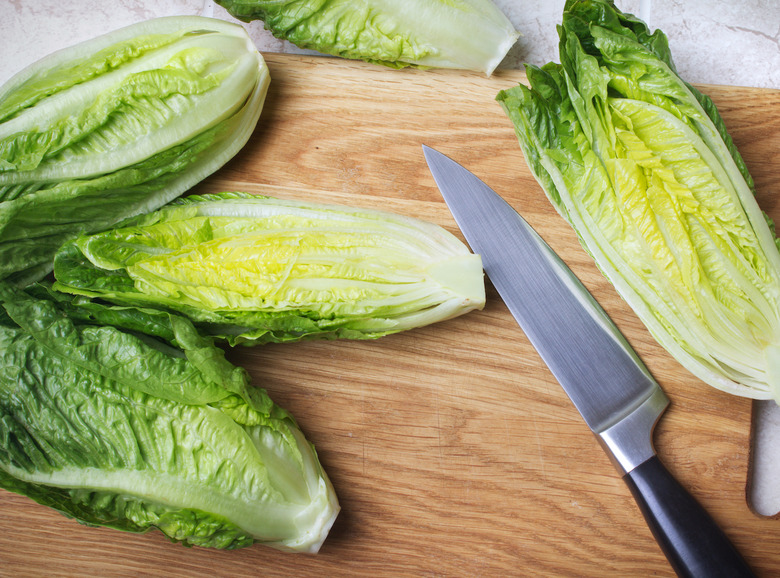Romaine Is Safe To Eat If It's Not From California, FDA Says
Good news, romaine lovers: You may be safe to enjoy your favorite lettuce in a salad again, as long as it is not from California. Health officials have traced the source of the E.coli contamination that has sickened 43 people across 12 states and 22 people in Canada to romaine lettuce grown in California's Central Coast region. Officials have found no indication that lettuce produced in Arizona, Florida or Mexico is affected.
The Fruits and Vegetables Least Likely To Poison You
The Centers for Disease Control and Prevention issued a bulletin on November 20 warning consumers across the U.S. to avoid the popular lettuce at all costs due to a new outbreak of Shiga toxin-producing E. coli. But a statement from Food and Drug Administration Commissioner Dr. Scott Gottlieb on November 26 now suggests that the recall succeeded in making a "clean break" in the romaine supply. The agency has revised its warning (as has the CDC) to indicate that consumers now need only avoid lettuce from the Central Coast.
The FDA's statement also indicates that the "leafy greens industry" (as the FDA is calling it) has agreed to ensure clear marking of harvest region and the date of harvest on all romaine lettuce, as well as to put in place standards for traceability of product and contamination prevention.
Lettuce supplies from Arizona, Florida and Mexico have gotten the all-clear from the government. "At this time, the FDA has no information to suggest any of these growing areas are involved in the current outbreak, which began well before any romaine lettuce from these winter growing locations was available for harvest," Gottlieb's statement indicates.
So if you're consuming whole heads of romaine, hearts of romaine and bags or boxes of precut lettuce and salad mix such as baby romaine, spring mix and Caesar salad, make sure it is from Mexico, Florida, or Arizona. "If you do not know where your romaine lettuce was harvested, do not sell or serve it," the CDC's update continues to warn.
The FDA's insistence on place-of-origin labeling is huge for consumers and food safety, said Creighton Magid, a partner at the international law firm Dorsey & Whitney and co-chair of the firm's products liability practice, "Unlike manufactured products, which can be traced through serial numbers, a consumer generally has no way to know where fresh produce was grown," Magid said in a statement to The Daily Meal. "That makes tracing the source of an outbreak more difficult, and also prevents limiting recalls of produce to products of a particular farm or region." Now that your lettuce problems are sorted (for now), make sure that you stay safe and follow all our other tips on avoiding food poisoning.
